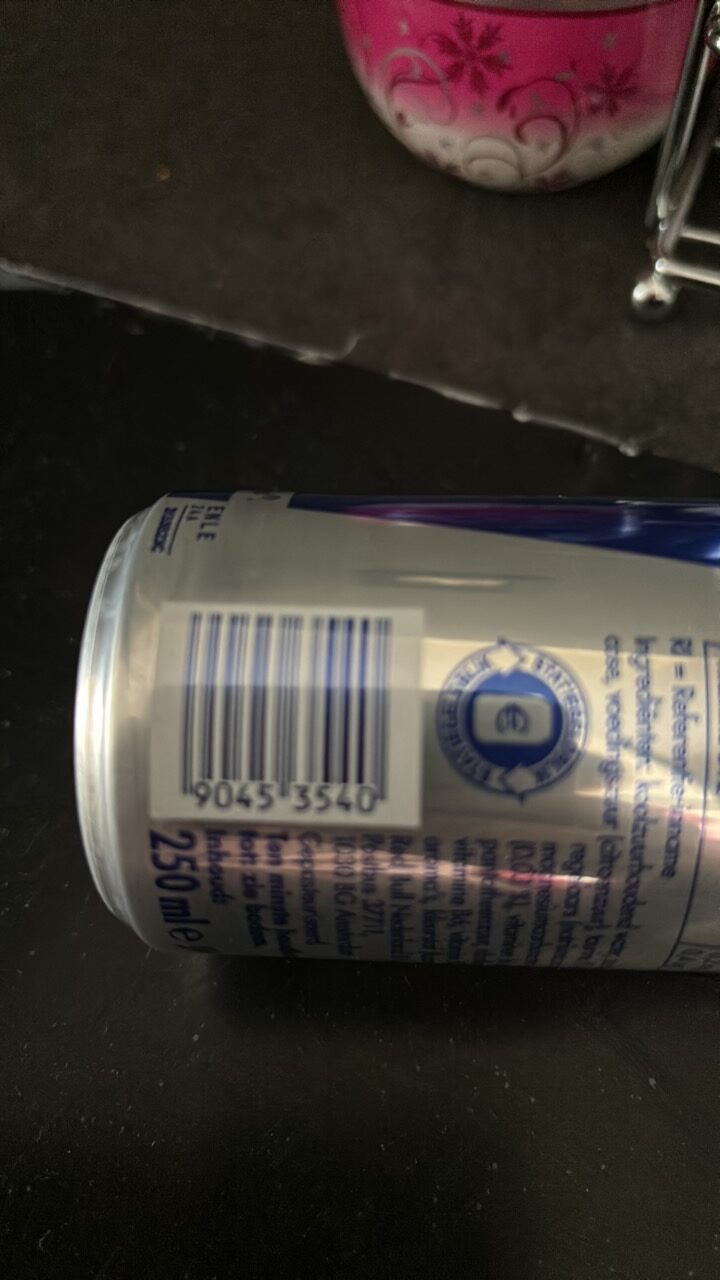
Barcode: 90453540
Red Bull
HALAL
📝 Reason: The product ‘Red Bull’ has been analyzed for Halal compliance based on its ingredients. Most ingredients are considered Halal, with the exception of ‘regcars’ and ‘aroma’s’, which are marked as doubtful due to lack of specific information. No Haram ingredients were identified. The product is considered Halal unless further information about the doubtful ingredients suggests otherwise. Islamic sources emphasize the importance of consuming Halal and avoiding doubtful matters (Quran 5:3).
🏷️ Category: Energy Drink
📄 Certificates: 250 Ml, Vegetarisch, Vegan
Ingredients:
Details
Is Red Bull Halal? Understanding Its Ingredients
As consumers become more conscious of their dietary choices, many seek clarity on the Halal status of popular products. One such product, Red Bull, an iconic energy drink, raises questions about its compliance with Halal standards. In this article, we will explore the Halal status of Red Bull, its ingredients, and the reasoning behind their classifications.
Halal Status of Red Bull
According to our analysis, Red Bull is considered Halal. This classification is based on its ingredients list, where we identified no Haram (forbidden) components. However, certain ingredients, including ‘regcars’ and ‘aroma’s’, have been marked as doubtful due to insufficient specific information. As per Islamic dietary guidelines, consuming Halal and avoiding doubtful matters is crucial (Quran 5:3).
Ingredient Analysis
To understand the Halal status of Red Bull, it’s essential to break down each ingredient:
- Koolzuurhoudend water (Carbonated Water) –
Generally considered Halal. It is simply water infused with carbon dioxide, creating fizz and carbonation useful in several beverages. - Citroenzuur (Citric Acid) –
This ingredient, derived from citrus fruits, is also considered Halal. Citric acid is widely used as a preservative and flavor enhancer. - Regcars –
This ingredient remains uncertain, marked as doubtful in Halal status due to a lack of specific details. Consumers are advised to stay informed and seek more information regarding this component. - Magnesiumcarbonaat (Magnesium Carbonate) –
A mineral compound that is regarded as Halal. It is typically used as an anti-caking agent and often found in various food products. - Vitaminen (Vitamins) –
Vitamins can be Halal, provided they are not sourced from Haram materials. Importantly, the specific source of the vitamins used in Red Bull is not specified, so consumers might want to dig deeper into their origin. - Aroma’s (Flavors) –
This ingredient is also classified as doubtful due to the unclear information regarding its source. The flavors added to the drink might or might not derive from Halal sources.
E-Numbers and Their Status
Regarding the E-numbers listed in the ingredient data:
- E330 (Citric Acid) –
Considered Halal, commonly found in many consumables. - E504 (Magnesium Carbonate) –
A mineral additive, also considered Halal. It is safe for consumption and often used in medicine and food products.
Certification and Other Considerations
Red Bull is packaged in a 250 ml size, and it is labeled as Vegetarian and Vegan. However, it is vital for consumers adhering to strict Halal diets to check the specific sources of ingredients marked as doubtful regularly. The lack of transparency regarding ingredients such as ‘regcars’ and ‘aroma’s’ highlights the importance of manufacturers providing detailed information to consumers.
In conclusion, the Halal status of Red Bull appears favorable; however, it is always good practice for consumers to remain informed and exercise due diligence, especially in cases where ingredients are marked as doubtful. As a widely consumed beverage, Red Bull serves as a case study in the complexities surrounding Halal dietary requirements in contemporary food and drink.
